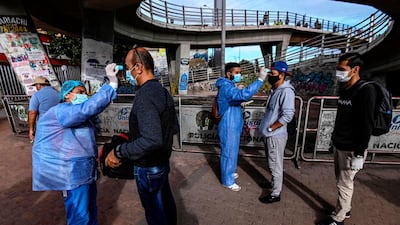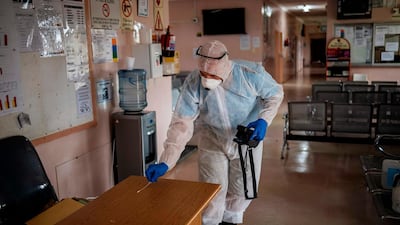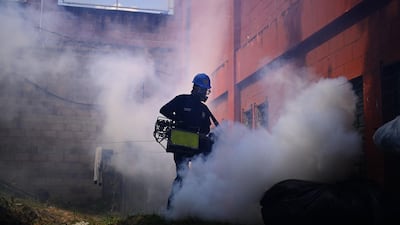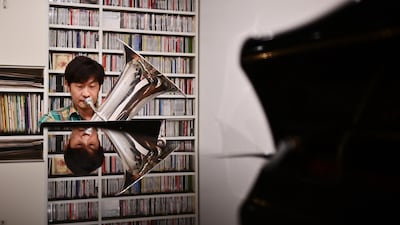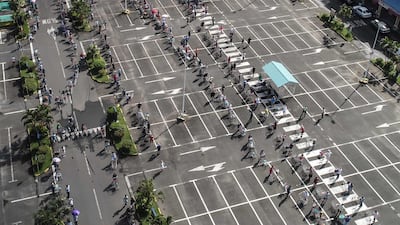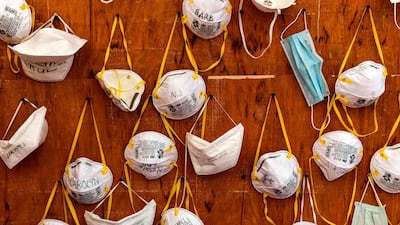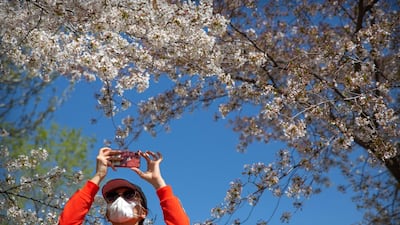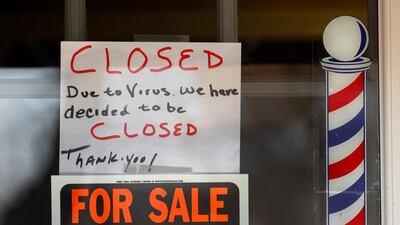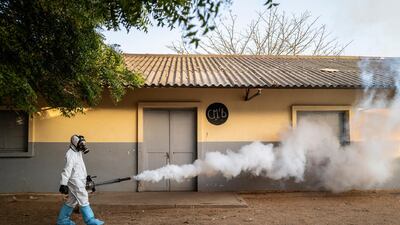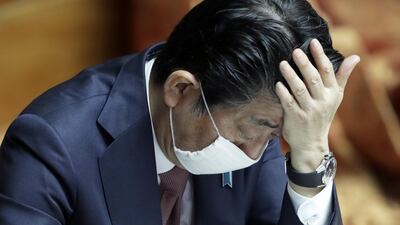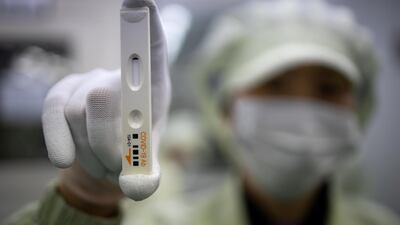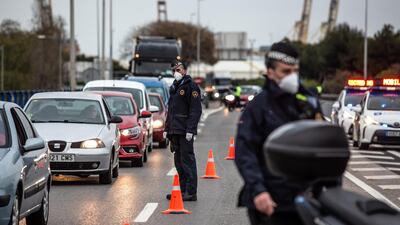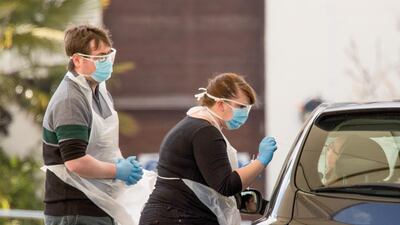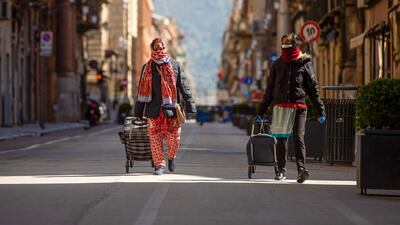In the space meant to hold thousands, just a dozen people slowly circumambulate the sacred Kaaba in Makkah's Grand Mosque.
The walkways above are also empty. So are the streets outside.
On highways, police cars block lanes and along usually bustling boulevards the shops are all shuttered.
The holy cities of Makkah and Madinah are now under 24-hour curfew as the kingdom of Saudi Arabia seeks to stem the rising tide of the coronavirus.
The capital, Riyadh, is quarantined as is the Red Sea city of Jeddah. In the east, the nightly curfew has been brought forward to 3pm in Dammam and the governorates of Taif and Al Qatif.
The health ministry announced a further 154 cases on Friday, bringing the total to 2,039.
Globally, the number infected passed the 1 million mark overnight on Thursday and at least 55,000 have died. However, people are still recovering in large numbers with at least 218,000 confirmed cases no longer testing positive for the virus. In Saudi, at least 351 people who previously tested positive for the coronavirus are now better.
With the whole government clicking into gear to fight the spread, only 25 people have so far died of Covid-19, the disease caused by the coronavirus.
The first cases in early March came from travellers passing through and members of the Shiite minority travelling back from Iran unbeknownst to officials. From there the cases began to spread. First in eastern Qatif as three women contracted the virus from a pilgrim returning from Qom – the epicentre of Iran’s outbreak. A handful of new confirmed Covid-19 patients were declared daily. By mid-March at least 20 a day. On March 22, the number jumped – for the first time over 100 new cases were declared and the spread continued.
The country was quick to shut down the borders and restrict entry when the virus spread across the region, but it was already in the kingdom and going from person to person.
It’s not the first time the country has battled against a coronavirus: in 2012, an outbreak of Middle East Respiratory Syndrome (Mers) killed several hundred and spread across the region.
The experience battling the outbreak has given the government many of the tools useful in the fight against Covid-19.
Several hospitals already had separate triage units and others had drive-through test centres.
"Their experience with Mers uniquely positioned them because they learnt a lot from that," Joanna Gaines from the US Centres for Disease Control and Prevention told Reuters. "They know it's Mers season and they're already cued up for that. The preparation and processes really cuts down on your exposure right away."
In the kingdom, the government is now bringing all its experience to bear in the fight against the virus.
The Health Ministry’s Mawid medical app – usually used to book visits to the doctors – launched a self-assessment Covid-19 symptom checker. The ministry says 25,000 self-assessments have already been done.
In Riyadh, shoppers buying essentials can make their order through the window of their vehicles, limiting contact with others. There are also now allotted times when shops will only be open for vulnerable groups, such as the elderly or those with immunodeficiency, to limit their exposure further.
Government labs are mass-producing hand sanitiser to distribute free of charge.
The city streets are disinfected daily as part of a massive cleaning operation that has disinfected over 11,000 locations in the capital alone, the Saudi Press Agency reported.
With millions visiting the country every year for Umrah pilgrimage and Hajj, ministries are used to massive emergency planning.
Coronavirus around the world
This “unique experience”, the World Health Organisation has said, is helping in the fight.
King Salman is also directing the country’s vast oil wealth be used to soften the economic blow as the country grinds to a halt and shelters at home.
On Friday, he ordered the country's unemployment benefits agency to cover up to 60 per cent of salaries for private-sector employees in industries hit by the virus until June. Most government workers have already been sent home.
The finance ministry and central bank are already extending billions of riyals to small and medium enterprises as well as banks and financers to cushion the impact.
Meanwhile, the oil industry continues to pump at record rates. With lower demand at home for energy, the government has announced that it plans to export 10.6 million barrels a day by May. However, talks are underway with Russia – the world’s largest gas exporter – to cut supply as the world goes into lockdown and energy use plummets.


























